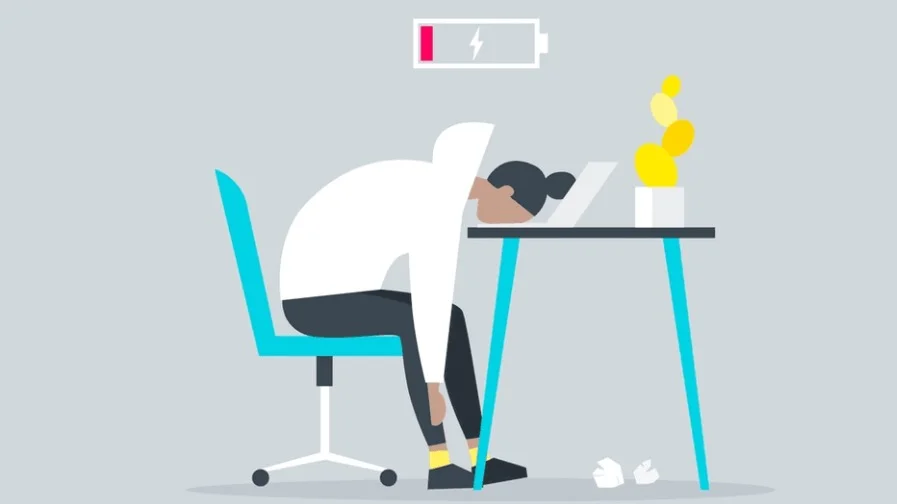Jim is exhausted and sleeping poorly, when he sleeps at all. He can’t seem to concentrate – his most complex work tasks seem to take at least twice the typical amount of time. Jim’s most recent work evaluation was his worst yet and he fears he’ll be put on probation if his productivity doesn’t improve. Jim feels much less engaged with his work than even a year earlier. In addition, his spouse and children are frustrated with how rarely Jim seems to enjoy being with them.
Katherine often is irritable, lacks energy, and has missed several recent deadlines. Her teammates are concerned about teaming with her because she’s not been reliable. She has a persistent thought: “I’m not very effective anymore.” Katherine wonders why she’s not being asked to join them in after-work activities. Also, it seems she’s always complaining about some ailment that’s bothering her. Katherine’s life partner has been begging her to go to counseling to sort things out.
Bill surprises himself with how impatient he’s become and how quickly he reacts with anger, both at home and at work. Just last year he told a co-worker how much he loved his work, but recognizes he’s become more cynical and, most days, dreads going to work. He knows he’s been drinking more lately and has trouble extracting himself from bed in the morning. Bill hates that his teammates seem to be avoiding him. He also has confided to a co-worker friend that he’s unsure he can do the job as well as in the past. In addition, his primary physician was alarmed by Bill’s worsening health markers, and challenged Bill to reflect on possible causes.
What each of these individuals likely have in common is job burnout. According to the Mayo Clinic, job burnout “is a special type of work-related stress — a state of physical or emotional exhaustion that also involves a sense of reduced accomplishment and loss of personal identity.”1 While not a medical condition per se, the World Health Organization calls it “a syndrome conceptualized as resulting from chronic workplace stress that has not been successfully managed.”2
Is it prevalent? And is it a pandemic phenomenon?
Certainly, for many, the COVID pandemic has exacerbated some of the symptoms described above, with more than half of 1,500 survey respondents indicating they were burned out (compared to 43% pre-pandemic), and two-thirds saying the burnout symptoms had worsened over the prior year.5 The same 2021 study (by Indeed) found more than half of Millennials and Gen Xers indicated feeling burned out (and nearly a third of Baby Boomers) – each of these higher – though surprisingly only a bit higher – than pre-pandemic levels. Relatedly, more than a quarter of respondents “are unable to unplug from work,” with more than half indicating working longer hours than before the pandemic pivot.5
What does it consist of?
A prolific job burnout researcher, Christina Maslach, has devoted much of the past five decades to studying its causes, effects, and remedies.3 Maslach’s research has identified burnout as having all of these components:
1] exhaustion from chronic work stressors (extreme tiredness and lack of energy to do what’s required), plus
2] cynicism, a negative attitude and mental distancing from a job, or a hostile response to the job (“Take this job and shove it”), resulting in suboptimal performance, plus
3] professional inefficacy, an increasingly negative sense that an individual doesn’t have what it takes to do the work well (“I’m just not that good anymore at this job”; “I don’t believe I have the ability to do this job well”).
4] reduced work engagement, low levels of motivation and commitment to one’s work, often coupled with a negative attitude towards one’s work, has recently been identified as a fourth symptom of burnout. 11
The opposites of these – having high energy, being very engaged in one’s work, and having a strong belief in one’s professional abilities (i.e., efficacy) – are viewed as ‘engagement.’3 Not surprisingly, burnout often occurs when engagement is eroded – i.e., when “energy turns into exhaustion, involvement turns into cynicism, and efficacy turns into ineffectiveness.”4 According to Gallup,7 burnout “diminishes employees’ desires to learn and grow. When employees are experiencing these signs of burnout, most of their energy and mental focus is on daily survival, not developing for the future.”
What causes burnout?
Job burnout has several potential causes (or ‘sources’), and individuals struggling with more than one cause can contribute to its’ acceleration and intensity. According to Maslach and others, job burnout can stem from a variety of (typically chronic) sources: 3,6,10
- Unsustainable Workload – a mismatch between the demands of the job and the resources provided to do my work well. Is the amount of work manageable? Are deadlines realistic? Are job expectations unclear? Do I have the information and tools I need to do the work well? Is the amount of paid time off (PTO) satisfactory?
- Perceived Lack of Control – a lack of autonomy to do the work well. Am I free to do my work freely, without coercion, and in a way that I uniquely feel is best? Am I being micromanaged? Do I have the training to do the work expected of me?
- Inadequate Rewards for Effort – a mismatch between what a worker believes they deserve and the extrinsic, intrinsic, and social rewards received. For the work I’m doing, are the rewards satisfactory? Do I get the recognition, perks, promotions, and financial rewards I deserve?
- Lack of a Supportive Community – dysfunctional workplace dynamics, a lack of support, or a feeling that one doesn’t fit well within the work environment. Do I feel supported by my boss and teammates? Do I feel valued by them? Do they have my back when I struggle with getting the work done? And do they communicate expectations effectively? Do I have close work friends with whom I can discuss work issues?
- Lack of Fairness – inequitable treatment, due to subjective factors. Do I feel like I’m treated fairly, without discrimination? Do I sense that some are in the “in-group” with those in power, while others aren’t? Is work performance evaluated objectively? Are rewards handled fairly? According to a 2019 (pre-pandemic) Gallup survey, unfair treatment at work was the factor most correlated with job burnout. Moreover, workers who ‘strongly agreed’ that they were often unfairly treated were 2.3 times more likely to suffer from high burnout.7,8
- Values or Skills Mismatch – a disconnect between one’s own values and those of one’s teammates, boss, or organization. Do I find meaning in my work? Do I take pride in the work I do? Do I sense a lot of unethical behavior in my work environment? Am I periodically asked to do something that feels unethical?
- Work-life imbalance,1 when work demands put the squeeze on one’s time or energy for non-work activities, like hobbies and time with family and friends. For many workers, the ongoing COVID pandemic has exacerbated job burnout, as the myriad constraints put in place have many of feeling handcuffed by what we can no longer do (or do as much).
- Chronic Pressure — from many of the issues above and more, including deadlines, from expectations (both of self and others), from trying to maintain one’s professional (and successful) identity), from a boss or co-workers, from an inability to manage both workload and life outside of work, from family members, from financial and social obligations, perceptions that one’s organization and/or industry is barely surviving, and more.
- Poor Leader Role Modeling 10, 11 — a lack of authentic caring and empathy; a disproportionate emphasis on productivity and task accomplishment (and not on people); an expectation that direct reports will also work nights and weekends.
The Indeed survey (cited above) indicated at least two possible causes contributing to the burnout during this pandemic: difficulty paying bills and health concerns.
What YOU can do to overcome burnout
Recent research has uncovered several ways burnout can be alleviated, and you’ll need several methods, since “it’s a multifaceted issue that requires a multifaceted solution.”5 According to Gallup, it’s a myth that simply reducing hours working will solve burnout.8 Here are some solutions from the burnout literature:1,3,4,6,7,9
- Communicate transparently and connect with those closest to you – at work and at home – about your work-related struggles. Don’t isolate from others.10 Support and caring from trusted colleagues, bosses, and coaches matters – but you must communicate. Work with your boss to re-calibrate goals, deadlines, and boundaries.9
- Ask your boss (or other influential person) for time to listen to you. Gallup found that workers who have a manager always willing to listen to work-related problems were 62% less likely to feel burned out.7 Having an empathetic manager is solid gold to your well-being.10, 11
- A supportive team. Get on a cohesive, high-trust, caring, high-functioning team.
- Increased attention to self-care: physical activity, at least 7 hours of sleep, mindful meditation, deep breathing exercises, long breaks from work tasks, hobbies, vacations, time with friends and family, healthy eating, limit alcohol consumption, see healthcare professionals and/or a coach.
- Make changes to your workload AND the way you work: Delegate (much) more; dialogue more with those who can take work from your workload; set more boundaries and radically limit your distractions; focus 90+% of your time on only what’s most important now.
- Consider better work options, even a job change, one with some combination of the following: work that is more engaging or more meaningful, has a reduced likelihood of unwieldy job demands, has more social and mental health support, is a better fit with one’s values and skills, has a more flexible schedule and generous amounts of PTO, and a culture (and leadership) that values work-life balance.
How coaching can help with job burnout
First, a skilled coach can help a client identify both burnout sources and effects. For example, if a client complains of being “constantly exhausted” or says something like “I just don’t like my job anymore,” such statements should prompt the coach to ask questions to help the client dig deep for work-related factors contributing to the negative comments.
Second, a coach could help by asking questions that explore options the client could take to alleviate the exhaustion, the cynicism, and the professional efficacy disconnect.
Third, a coach could help nudge a client to take bold actions – actions the coach helps the client discover that could not only alleviate burnout but also lead to more satisfying work and improved well-being overall.
Fourth, the coach can help the client hold themselves accountable by prompting the client to set goals and deadlines for reaching their new goals, and then nudging the client to report back with updates.
Feeling burned out? Consider working with a coach to help you uncover solutions and get unstuck.
References: [Note: some of what’s below may require a subscription]
1 Job burnout: How to spot it and take action – Mayo Clinic
2 Burn-out an “occupational phenomenon”: International Classification of Diseases
3 Why we’re burnout out and what to do about it, with Christina Maslach, PhD; also: Leiter, M.P. & Maslach, C. (2017). Burnout and engagement: Contributions to a new vision. Burnout research, 5, 55-57. Maslach, C., Schaufeli, W. B., & Leiter, M. P. (2001). Job burnout. Annual Review of Psychology, 52, 397–422.
4 Maslach, C., & Leiter, M. P. (1997). The truth about burnout: How organizations cause personal stress and what to do about it. Jossey-Bass.
5 Employee Burnout Report: COVID-19’s Impact and 3 Strategies
6 6 Causes of Burnout, and How to Avoid Them
7 How to Prevent Employee Burnout – Gallup; Employee Burnout: Causes and Cures
8 Employee Burnout: The Biggest Myth
9 Worker Burnout Is At Frighteningly High Levels: Here Is What You Need To Do Now
11 The Burnout Epidemic: The Rise of Chronic Stress and How We Can Fix It; Preventing Burnout Is About Empathetic Leadership
Other helpful resources to explore:
- To Help Your Employees Stay, Send Them on a Break | Inc.com
- How To Avoid Burnout And Stay Productive: Four Ways
- More Proof That Money Can Buy Happiness (or a Life with Less Stress)
- Workers Keep Resigning. Here’s a Novel Idea to Get Them to Stay | Inc.com
- Women Do More to Fight Burnout — and It’s Burning Them Out
- The Real Reasons Workers Are Leaving in Droves? (Burnout Is on the List, but Not at the Top) | Inc.com
- 6 Signs It’s Time to Leave Your Job
- There’s a problem with the way we talk about burnout
- Burnout and stress are everywhere


